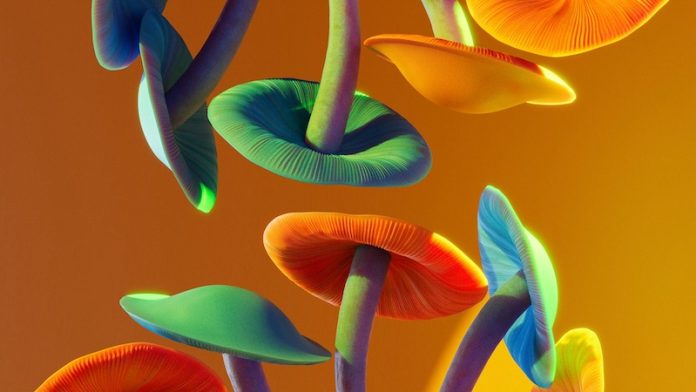
The anti-aging market is booming, with people spending over $500 million last year on products that promise to keep them young.
Many of these products are supplements based on hope more than science. But now, a team of researchers from Emory University may have found something that actually works.
In a new study, they discovered that psilocin, a compound found in psychedelic mushrooms, might help slow down aging in cells and animals.
Psilocin is what your body makes after consuming psilocybin, the chemical that gives psychedelic mushrooms their mind-altering effects. While psilocybin is mostly known for its mental health benefits, this new study shows that it might also help the body stay younger for longer.
In the lab, scientists looked at how psilocin affected human skin and lung cells. They found that the cells lived more than 50% longer when treated with the compound. This is a big deal because it suggests that psilocin helps protect cells from aging.
But the researchers didn’t stop there. They also studied older mice, about 60 to 65 in human years. Some of the mice were given a low dose of psilocybin followed by monthly higher doses for ten months.
The results were exciting: these mice lived 30% longer than the ones that didn’t get the drug. Not only that, but they also looked better, with healthier fur, fewer white hairs, and even some hair growing back.
How does psilocybin do this? The scientists believe it works by lowering oxidative stress (which damages cells), helping the body repair its DNA, and protecting telomeres—the parts of DNA that keep chromosomes safe. These processes are key to staying healthy as we age and avoiding diseases like cancer and Alzheimer’s.
This research could open a new path for anti-aging treatments. Dr. Louise Hecker, one of the senior scientists on the study, explained that most cells in the body have serotonin receptors—the same ones psilocybin interacts with.
This means the drug could affect many parts of the body, not just the brain. Hecker said this study raises new questions about what psilocybin might do when taken regularly later in life.
It’s also worth noting that this study comes at a time when U.S. life expectancy is falling behind. A recent report found that people in the U.S. live shorter lives than those in other countries with similar incomes.
From 1980 to 2022, life expectancy in those countries grew by nearly 8 years, while the U.S. only gained about 5 years. This makes research like this even more important.
Dr. Ali John Zarrabi, who studies psychedelics at Emory University, said that what excited him most wasn’t just the longer life in mice—but the better quality of life. As a doctor who works in palliative care, he worries about people living longer but suffering more. In this case, the mice lived longer and healthier lives.
Zarrabi also pointed out that physical and mental health are closely linked. Emory is already studying psilocybin as a treatment for depression, and these new results suggest it could help with aging, too. If the FDA approves psilocybin therapy by 2027, Zarrabi hopes it will not only treat mental illness but also help people live longer, healthier lives.
This new research offers a hopeful and exciting glimpse into the future of aging. While more studies are needed in humans, psilocybin might one day help people not just live longer—but live better.
If you care about brain health, please read studies about Scientists find connection between fungus and Alzheimer’s disease and findings of Scientists find links between COVID-19 and Alzheimer’s disease.
For more about Alzheimer’s disease, please read studies about Research shows root cause of Alzheimer’s disease and new treatment and findings of Scientists find the link between eye disease glaucoma and Alzheimer’s disease.
Copyright © 2025 Knowridge Science Report. All rights reserved.



